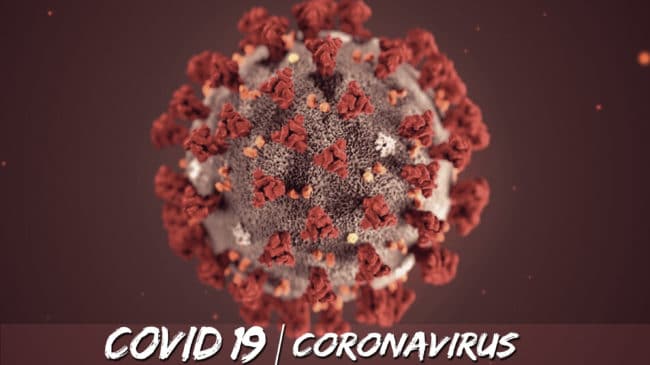With governments and public health authorities scrambling to mount an effective response to the global pandemic of COVID-19, a few politicians have seen fit to use the crisis to demonize e-cigarettes.
On Monday, New York City Mayor Bill de Blasio claimed, “If you are a smoker or a vaper that does make you more vulnerable.”
He added, “If you are a smoker or a vaper this is a very good time to stop that habit and we will help you.”
In a press conference supporting a ban on flavored e-cigarettes, New York Lt. Gov. Kathy Hochul also asserted that vaping increased vulnerability to COVID-19. Advising parents on what they should tell their children if they suspect them of vaping, Hochul said, “I would sit them down tonight and say if you are vaping…if you are exposed to the coronavirus, you have a higher chance of contracting it.”
Several media outlets ran with De Blasio’s comments failing to include any critical commentary. “Well, if there was ever a reason to quit, here’s another one,” Dr. Tara Narula, CBS News’ medical contributor, said. “Anything that’s going to compromise your lungs is going to increase your risk of being susceptible. We know that smoking decreases your ability to really fight infection.”
The advocacy group, Parents Against Vaping Electronic Cigarettes (PAVE) praised Hochul on Twitter for “raising an important question about vaping and coronavirus. Teens using flavored e-cigarettes may have compromised their developing lungs. Are these kids more susceptible?”
So it is worth asking: Is there any actual evidence that vaping nicotine raises the risk of contracting coronavirus?
Konstantinos Farsalinos, a cardiologist at the Onassis Cardiac Surgery Center in Athens and expert on e-cigarettes, examined the question on his blog.
The claim that there’s a link between cigarette smoking and the risk of COVID-19 infection seems to originally stem from the observation that more Chinese men contracted coronavirus than women and that the smoking rate for men is almost 50 percent, while it’s only around two percent for women. In February, the Chinese Medical Journal published a study examining the factors affecting the progression of pneumonia in 78 COVID-19 patients. It showed cigarette smoking was associated with 14-fold higher odds of disease progression. But Farsalinos points out there were only five smokers in the study—rendering the findings unreliable.
A separate study also published in February by the New England Journal of Medicine (NEJM) investigating the clinical characteristics of Chinese COVID-19 patients, used a larger sample of 1,099 patients. While the study’s findings may not be representative of the population of COVID-19 patients, the prevalence of smokers was significantly lower than one would expect.
“Considering an almost 50 percent smoking prevalence in males, one would expect that at least 29 percent of the cases would be smokers (even if smoking did NOT have an adverse effect on infectivity),” says Farsalinos. “Thus, the reported proportion of cases being smokers is low. Of the 1,099 cases, 926 were classified as non-severe (of which 11.8 percent were current smokers) and 173 were classified as severe (16.9 percent were current smokers).”
Farsalinos cautions that the study’s numbers may not be representative and that it did not directly examine the effects of smoking with regards to COVID-19.
As of yet, there isn’t the evidence to suggest smoking makes you more vulnerable to COVID-19 but that may change as further research is conducted. So what about e-cigarettes?
According to Farsalinos: “…we have zero evidence on how e-cigarette use affects coronavirus infectivity and disease progression. There is a lot of evidence that propylene glycol (one of the main ingredients in e-cigarette liquids) has anti-bacterial and anti-viral properties in aerosol form.”
Reacting to Mayor de Blasio’s claims, University of Catania professor Riccardo Polosa, a specialist in respiratory diseases and clinical immunology, tweeted: “Smoking or vaping increases people’s vulnerability to severe illness once infected by coronavirus says the Mayor of New York City. But where is the evidence? Stop placing smoking and vaping on the same level. Get your facts straight Mayor!”
Regardless of whether smoking increases the risk or severity of COVID-19, it remains one of the most dangerous legal activities and is the leading cause of preventable death in the United States. For those smokers who want to increase their life expectancy, quitting cigarettes is the best way to go.
But vaping nicotine is a different story. E-cigarettes are much safer than combustible cigarettes and have proved an incredibly effective tool to help people quit smoking. The American public is already dangerously misinformed about the risks of e-cigarettes. The majority of Americans believe, incorrectly, that vaping nicotine is just as, or more, dangerous than smoking.
Statements such as those made by de Blasio and Hochul will only add to this misperception, which is already deterring smokers from switching to a safer alternative.
Brad Polumbo of the Washington Examiner was one of the first and only media figures to draw attention to the dangerous nature of de Blasio’s comments. “What’s more, vapers tend to be young people, the demographic least at risk from coronavirus, so media speculation on this issue is a poor use of the public’s attention. In absence of serious evidence linking the two, such rampant spreading of an unfounded narrative serves only political purposes, not public health goals,” Polumbo wrote.
He’s right. Using a global pandemic to push anti-e-cigarette legislation with zero scientific justification is the height of irresponsibility and should be called out by politicians, public health professionals and journalists alike.

